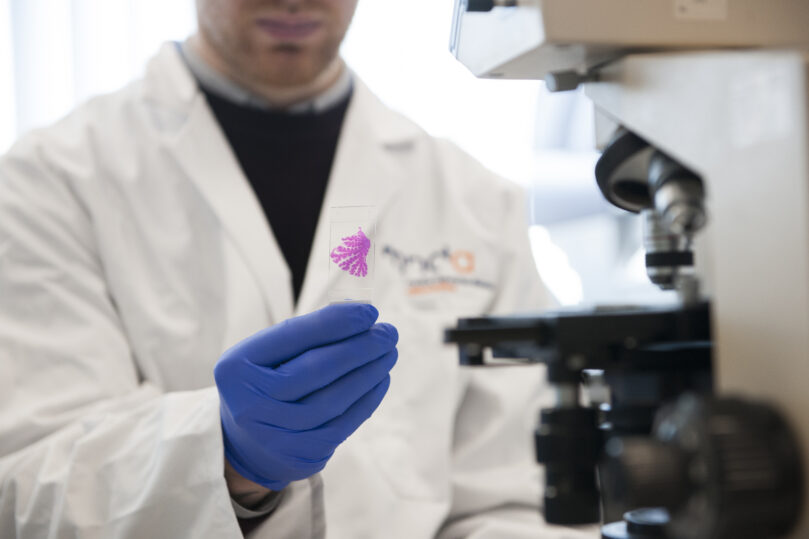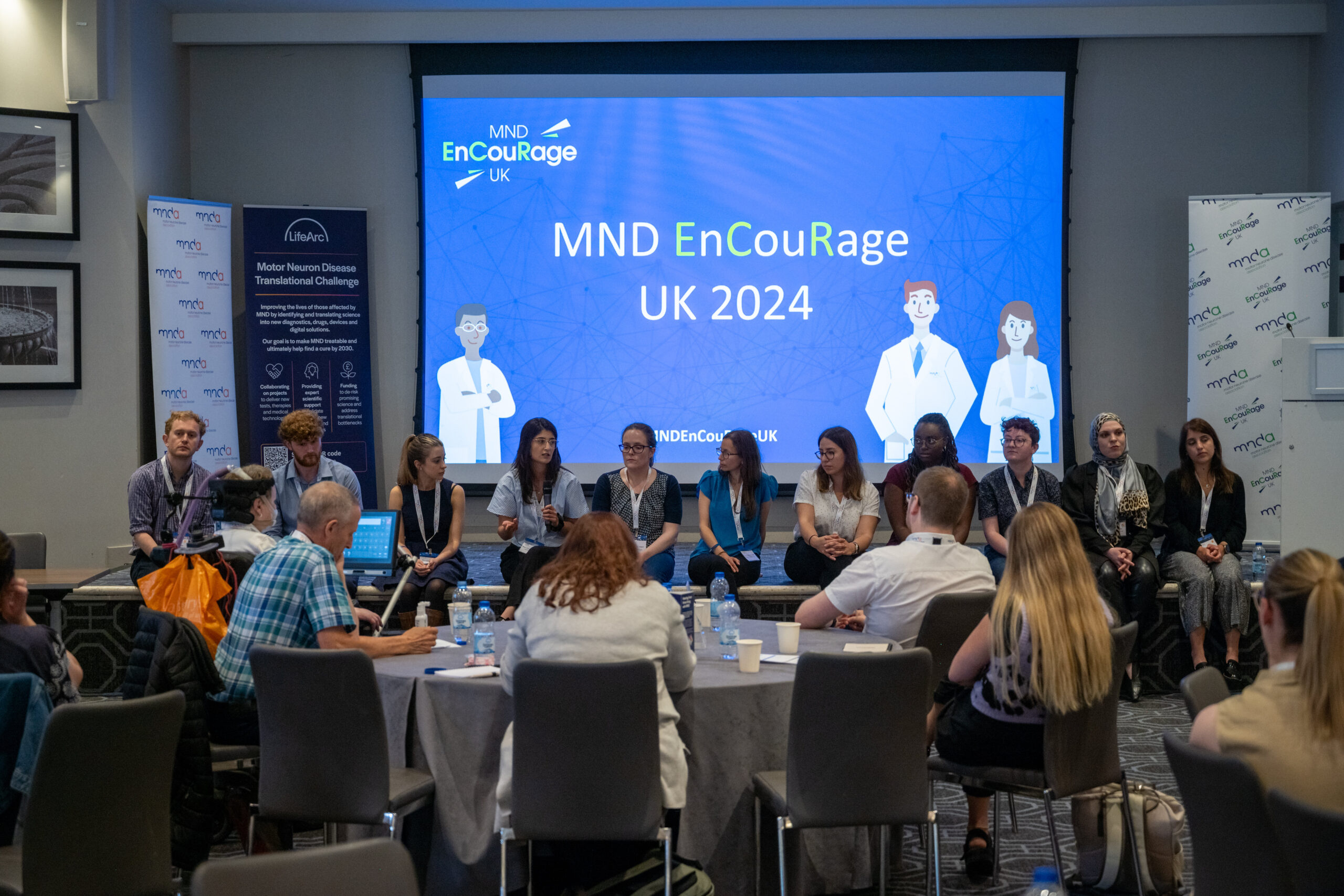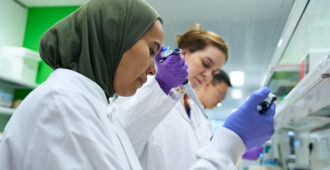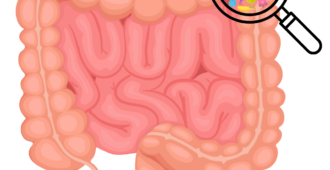Research into MND has increased over recent years and we now have a greater understanding of what is happening within the body during the disease. Only by understanding what is happening within the cells during the disease, will researchers discover the right targets to hit in the development of potential treatments. There is still a lot to uncover about the underlying biology of this complex disease and the current momentum of research needs to be maintained.
The Association remains right at the heart of MND research, continuing to fund and drive the most promising, pioneering research. The research we fund covers all aspects of MND research– from ‘laboratory bench to bedside’. There are projects which try to identify the causes of MND and develop functional models to study the disease, while others aim to find unique biomarkers to help speed up diagnosis and track progression of the disease. Some projects also hope to turn the most promising compounds into drugs that may be able to treat the disease, and others aim to improve the quality of life and care of people living with MND. As of the 31st December 2022, we are helping to fund a total of 104 research grants which involve the work of over 200 committed researchers and support staff. During 2022 we awarded several new grants and for the first time ever our research portfolio has topped a total lifetime value of £20 million. Find out more about some of the new research projects we are funding below.
Dr Lara McManus from Trinity College Dublin is investigating the connections between the brain and muscle in MND. She will be using a combination of a novel technique, called High Density Surface Electromyography, and Electroencephalography (‘brain wave’) recordings to examine the flow of electrical activity between the brain and muscle. It is hoped that combining these techniques may help to observe changes in activity that occur in those with MND and assess whether these changes worsen as the disease progresses and motor neurons become more damaged.

This will be the first study to use these combined techniques, which may be more sensitive than current methods and could pick up the earliest signs of motor neuron damage. The outcomes of this research could help to diagnose MND earlier and aid in clinical trials, helping to determine whether new therapies are effective at slowing the progression of the disease.

Dr Dariusz Wozniak at the Royal Papworth Hospital in Cambridge is researching a new way to improve the current standards of care for people with MND. This project is looking at initiation and monitoring of non-invasive ventilation in a home-based setting versus a hospital-based setting for people with MND. People with MND who have breathing difficulties are offered a type of breathing support called Non-invasive ventilation (NIV).
Typically, NIV is set up during a hospital visit and repeated visits to clinics are needed to monitor those with MND who use it. For some people, treatment may be able to be started and monitored at home, reducing the number of hospital visits needed. However, it is not yet known if home-based treatment is as safe and effective as hospital-based treatment. This study will recruit 60 people with MND who need NIV and randomly assign them to either home-based or hospital-based treatment. The study will measure treatment effectiveness, individual preferences, quality of life and cost effectiveness to assess whether home-based treatment may be more widely used for NIV for people with MND.
Dr Catheryn Lim, an MND Association Non-Clinical fellow, from the University of Oxford will be identifying the underlying biology of gene mutations in Kennedy’s disease. Kennedy’s disease is a disorder of motor neurons caused by a mutation in the gene encoding for a protein called the androgen receptor. Despite the genetic basis of the disease being known for a long time, there is a lack of understanding of the biological mechanisms underlying the disease.

This project will use animal and cell models of Kennedy’s disease to improve current understanding of how gene changes in the androgen receptor may lead to altered function of the receptor and the role this might play in the disease. Dr Lim will also screen for anti-sense oligonucleotides (short sequences of genetic material that can be used as gene therapies) to identify one that could reverse the gene changes and be a new potential therapy for the disease.

RELATED TOPIC
Blog | 10 February 2023
Building the MND Research Workforce

Dr Giampietro Schiavo at University College London will be supervising a PhD student who will be analysing changes in axon transport in MND. In neurons, there is a process that enables long-range transfer of information and nutrients from one end of the neuron to the other and back again. This process is called axonal transport. Evidence suggests that this process is impaired at the very beginning of MND. However, the underlying mechanisms that control axonal transport are not fully understood.
This PhD project aims to find out if the regulation of axonal transport is impaired in different types of MND and investigate whether substances identified in previous research are able to rescue axonal transport changes seen in neurons in MND.
The pace of research into MND has drastically increased over the last decade and continues to grow. It is a hugely exciting time for the field as many promising therapies are on the horizon and knowledge of the biology that drives the disease is ever increasing. Thanks to the dedication, sacrifice, and collaboration of the MND community, in partnership with MND researchers, we are moving closer to new therapies for the disease and working to improve care and support for people with MND.
You can find out more about all of the research we are currently funding on our website.
The MND Association would like to thank everyone who generously supports our research programme.






